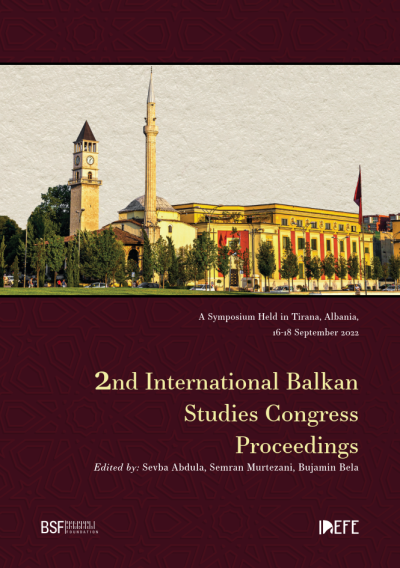Proceedings
Hafiz Sabri Koçi and the Islamic Revival in Post-Communist Albania
Authors
-
Arsida VelijaUludağ University
Synopsis
In the second half of the 20th century, Albania became exposed to a form of communist rule that lasted nearly 45 years. With the Albanian Labor Party coming into power under the leadership of Enver Hoxha in 1944, the government gra-dually developed a hostile stance against religion and all forms of religious practice. This also included atheism being designated as the state ideology in 1967, followed by a deep and widespread deprivation of basic human rights such as freedom of be-lief and its expression. Religious structures in the country were destroyed, with many religious leaders being imprisoned, exiled, or killed under unknown circumstances. Hafiz Sabri, a renowned imam, leading civic justice figure, and religious activist in Al-bania, was also subject to these dangers. His significant work in the civic and religious scenes led to him being imprisoned for over 20 years on account of the communist regime charging him with treason. Released during the waning years of communist rule, Sabri returned to his work and played a crucial role in reconstructing religious structures in Albania after a democratic multi-party system was introduced betwe-en 1990-1991. Using state and personal archives, memoirs, and interviews with Sabri’s contemporaries, this paper maps the trajectories of Albania’s difficult transition from communism to democracy, with a focus on the important role Sabri Koçi played in developing Islamic religious structures in Albania in the post-communist period. This paper further discusses the intense struggles during and following the communist period, as well as Sabri’s significant role in reshaping Albanian society and history.
Copyright
Copyright (c) 2025 Idefe Publications
License

This work is licensed under a Creative Commons Attribution-NonCommercial 4.0 International License.
Downloads
Publication Information
-
Publication TypeChapter
-
Volume
-
Pages85-102
-
PublishedJune 7, 2025
-
Series
-
Series PositionProceedings 03
Bela, B. (Ed.). (2025). Hafiz Sabri Koçi and the Islamic Revival in Post-Communist Albania. In 2nd Balkan Studies Congress Proceedings: Vol. Proceedings 03 (pp. 85-102). Idefe Publications. https://doi.org/10.5331/
